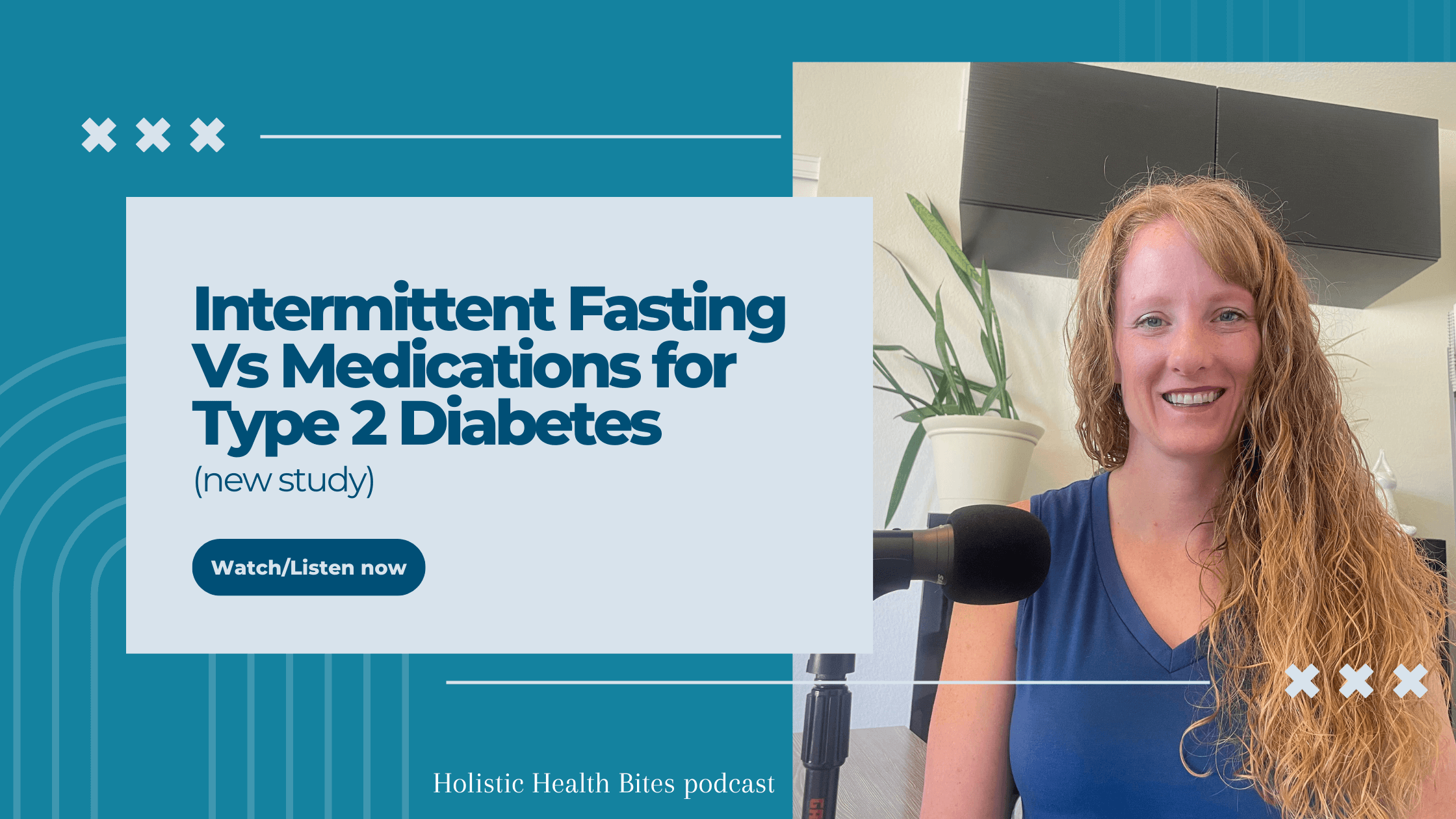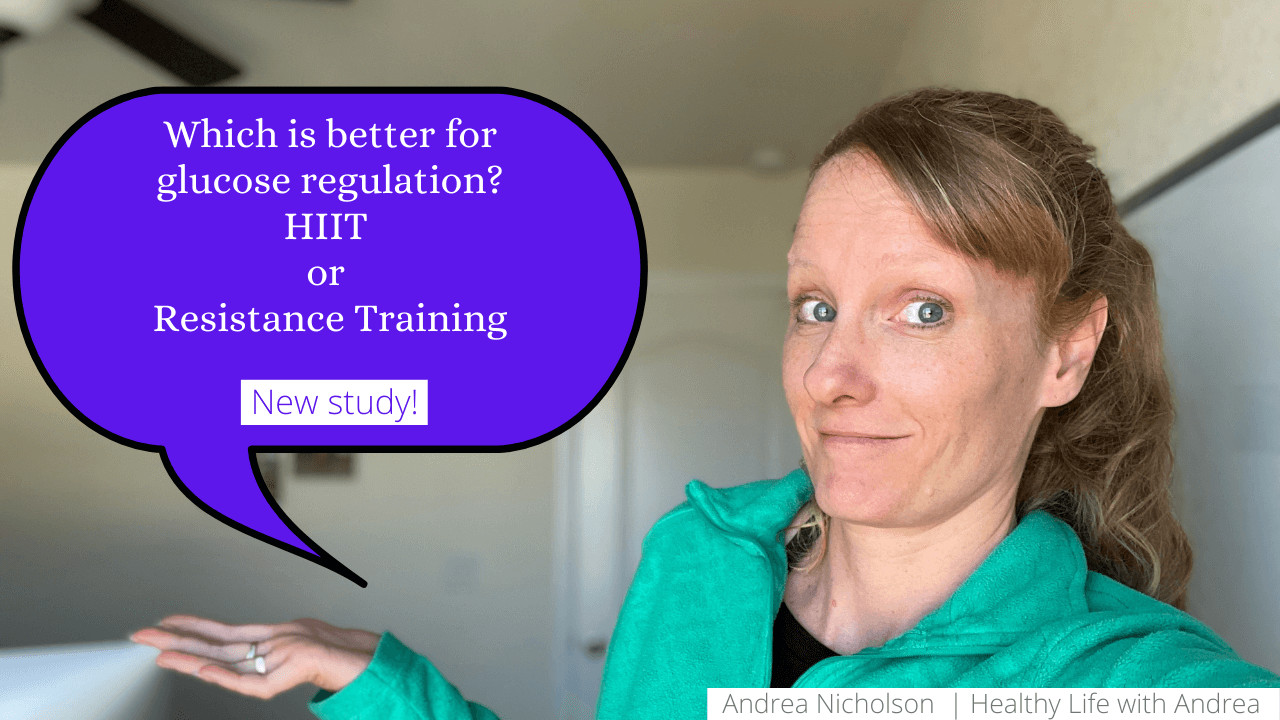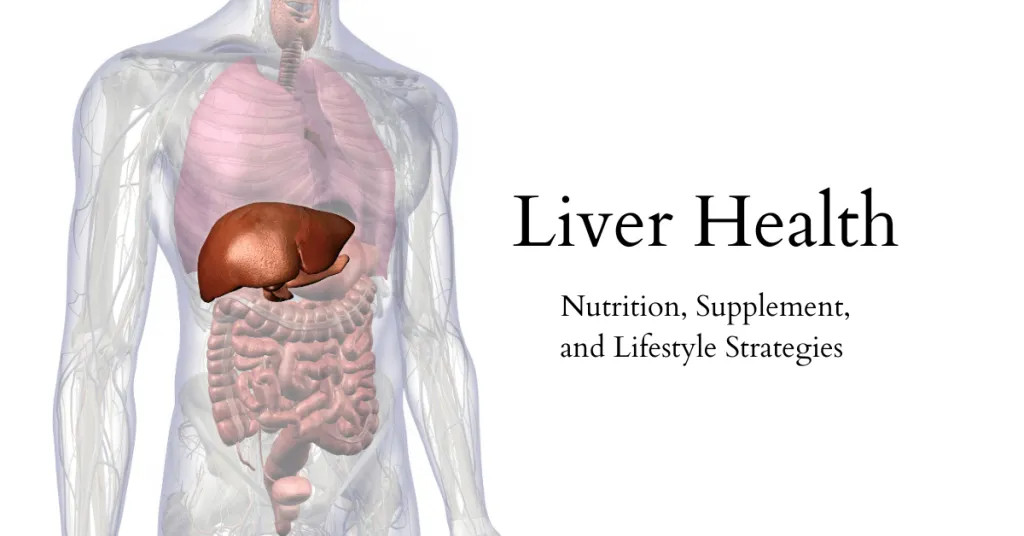
Intermittent Fasting Vs Medications for Type 2 Diabetes (new study)
EPISODE DESCRIPTION:
Today I'm breaking down a newly published randomized clinical control trial looking at an intermittent fasting protocol compared to two different common diabetes medications and the effect on hemoglobin A1c and various other metabolic markers.
Read the publication:
*This is NOT medical advice. Always consult with your health care team before implementing nutrition or lifestyle practices.
Watch or listen to the episode:
EPISODE TRANSCRIPT:
A new study just published out of China looked at an intermittent fasting protocol compared to two different diabetes medications.
This was a randomized clinical controlled trial with 3 different groups for 16 weeks with an 8 week follow up. Their primary measure was hemoglobin A1c between the beginning and end of 16 weeks. All participants were newly diagnosed with type 2 diabetes (within 1 year) and had not been on any anti-diabetic or weight loss medications for at least 3 months. All had a BMI of 24 or higher and A1c between 7-9%. Secondary metrics were weight, BMI, waist circumference, hip circumference, waist to hip ratio, blood pressure, fasting blood glucose, fasting insulin, fasting C-peptide, HOMA IR scores, lipid profiles, and uric acid levels. Comparisons were made between starting and 16 weeks, then again at the 8 week follow up mark.
There were 405 people randomized into one of three groups. One group was using the pharmaceutical drug Metformin. One group was using the drug commonly referred to as Jardiance. And the third group was following an intermittent fasting plan along with meal replacement shake. All participants were given exercise and dietary guidance as well as diabetes education every 4 weeks.
Before we dive too deep into the results of this study, I want to break down this intermittent fasting plan a bit. There are countless ways to follow an intermittent fasting plan. This particular study used a protocol called 5:2 with a meal replacement. What that meant was they ate their normal breakfast and lunch 5 days of the week, replacing dinner with a meal replacement shake. The other 2 days, which could not be consecutive days, only one meal replacement shake was consumed.
This is not the only way to do an intermittent fast, though it is a popular method. Some people find that consuming a small amount of food (in this case 500-600 cal) is easier than not having anything. Others find having a little is harder that having none.
Ok, back to the results. Of the 405 initial participants, 332 completed the trial.
-At 8 and 12 weeks into the trial, no participants in the IF group were found to need medications added to their plan. 1 participant in the Metformin group had fasting glucose of 218mg/dL and needed additional medications to manage.
-At 16 weeks, the IF group had the greatest reduction in A1c, significantly greater than those receiving either medication. There was no difference between the two medication groups. More patients in this group achieved A1c levels below 7% than in either medication group with 80% achieving levels below 6.5%. Fasting glucose also dropped more significantly in this group (~30.3 mg/dL). At the end of the 8 week follow up 76.6% of the participants had maintained the lower A1c level below 6.5%.
-At 16 weeks, the IF group saw greater weight loss (9.7 kg/21.34 lbs) compared to 5.5 kg Metformin and 5.8 kg Jardiance. And more patients in the IF group lost weight compared to the medication groups. The IF group also saw the most significant changes in waist and hip measurements and blood pressure. They also saw the best improvement in triglycerides and HDL levels.
-Side effects were also less common with 1 case of constipation and 8 cases of hypoglycemia in the IF group. The metformin group had 26 patients with GI distress and 8 with hypoglycemia. The Jardiance group had 3 patients with urinary issues, 5 patients with hypoglycemia, and 1 patient with thirst. 2 patients on Jardiance experienced serious adverse events such as rash and hospitalization due to high ketone readings.
As always, remember, this is only one study that looked at newly diagnosed type 2 diabetic patients in China, who hadn’t been on diabetes or weight loss drugs. This does NOT mean the same outcomes would occur across all demographics, nor that this is the best plan for you to follow. None of what you’ve heard today is medical advice and you should always work with your health care team to determine the best protocol for you. There are countless natural options, including nutritional ketosis, low carb diets, intermittent and extended fasting plans, strategic supplementation, and even medications. Most often, truly reversing a condition like insulin resistance, prediabetes or type 2 diabetes requires a combination of nutrition and lifestyle factors.
I’d love to hear from you on this episode. Join the Solving Insulin Resistance Naturally group on FB and let’s continue the conversation.
Until the next, be well and vibrant.





















0 Comments